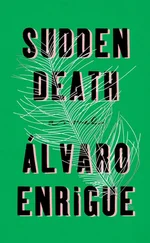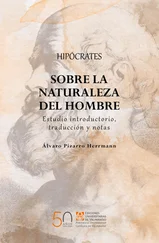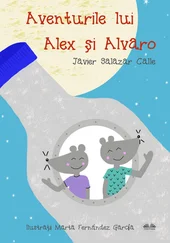The original idea was to stay there for a whole month, but Ishi insisted that they return to San Francisco; each time that they tried to convince him otherwise, he made it clear that he preferred the comfort of the museum over returning to live in the wilderness. Apparently, it never occurred to anyone to consider that returning to the forest might be depressing for the Indian. During what the doctor calculated to have been his first thirty-three years of life, Ishi hadn’t exactly been living in a rose garden.
The Yahi tribe was the last in the United States to be subjugated: unlike in the cases of the Apache or the Lakota, there was no formal surrender process because the Yahi were exterminated with singular viciousness: if the federal troops discovered them before the bands of trackers that set out from Oroville, they would take them to a reservation, but no white person from the area seemed to consider that punishment enough.
Ishi survived because he had the unheard of luck of not being present during either one of his tribe’s two fatal encounters with the enemy. In the first, the Indian hunters — relatively civilized family men when they were not scouring the hills — happened one afternoon upon the last remaining Yahi camp in the canyons. The tribe had already been devastated by five years of war and persecution — and the hunters waited patiently for daybreak to be able to fire on them from the hilltops. Ishi had gone to the forest with his grandmother who, it seems, was the tribe’s shaman, and they had spent the night there so the evening dew might bless the roots they had gathered. Upon returning, they found the camp destroyed. It took them some time to locate the rest of the tribe, who were left almost without any men: the women and the children had taken cover in the gullies while the braves sacrificed themselves to the ranchers’ gunfire. From their refuge in the mountains, the surviving Yahis went foraging and hunting by night.
One day, a band of white men, aware that some of the enemy had escaped them, found a trail of deer blood under the trees — which in all likelihood were lindens. They followed it and had no problem discovering the Yahis’ hiding place. According to a superbly written account by one of the hunters, the situation was ideal: having occupied the mouth of a dead-end cave, none of the Indians was able to escape. In one of the tale’s most shocking passages, the California gentleman relates that at one point during the massacre he decided to use his revolver because it made for a cleaner job: babies, he quickly learned, explode when you shoot them with a rifle.
I only found out that part of Ishi’s story later on — a part that he never knew well, or never with the same detail I now know it — in a book of chronicles from the period at my university’s library. For his part, he simply returned with his mother and his sister from the creek and found that, for the second time, they had to start burying their dead. Although he never spoke directly about that day, he alluded more than once to the terrible task of having to bury all of his people.
By the time I read that account I’d already tried five or six times, without the least success, to write a story about Ishi, and it always turned out to be too political: deadly literal with all its meanings exposed, or not all of them but definitely those that interested me least. What seduces me about Ishi is not his tragic condition and how clearly that reflects the fact that the American continent is the booming utopia of a gang of criminals, but the unimaginable loneliness of one who knows himself to be the last of something, for which no hope remains.
The version that I wrote at that time was the worst of them all, because by then I was loaded down with other humiliations, and consumed, as a result, with the sort of moral outrage that makes us find certain forms of hypocrisy preferable to others. That version of the story was called “Taking Democracy to California.” The title alone is bad enough.
There is another story, a very good one, by Bernardo Atxaga, who tells how one day, walking through a town in his native region of the Basque Country, he suddenly found himself facing an old man outside a door with a hole in it. They spoke a little bit and at last the old man asked him if he knew why there was a hole in the door. Atxaga says that he answered that it must be for the cat. No, the man told him, it was made years ago so they could feed a little boy who turned into a dog after being bitten by one.
The stories that I like, the ones that make me jealous and fill me with a wild desire to write ones just like them, have the same dazzling logic as the old Basque man; there’s a piece missing, and that gap transforms them into myth. They appeal to the lowest common denominator, which makes us all more or less the same.
If a dog bites a little boy and gives him rabies, the illusion of a universal rule of cause and effect is maintained; order exists, for which reason there are categories. If, on the other hand, the boy turns into a dog, the world is uncontrollable — like our affections, our inability to live up to our own standards, and our undeserved misfortunes, which is to say, almost all of them. Atxaga’s friendly old man would never wear a T-shirt that said Old Man ; his words alone suffice, for the same reason that when writing literature or making movies, the best stories are love stories that go wrong: they’re preloaded with everything required for A to lead to B and from there to little children, but something gets fucked up without anyone knowing what happened, exactly, and so A leads to the cliffs of W and the S curve of suicide.
In spite of the fact that he lived almost his entire life in the most acute loneliness, Ishi always resisted the temptation of killing himself — but the silence of a museum is even worse than that of an unpromising professor’s apartment, so that reading about a solitude like Ishi’s, which couldn’t even derive any pleasure from the chic touch of being self-inflicted, makes me feel something similar to what I was made to feel by reading about the solitude of the boy who turned into a dog. It fills me with the hope that someday the futures that slip through my fingers like marbles will seem like a mythology.
Ishi’s third and final misadventure with white people before surrendering at the slaughterhouse in Oroville was the definitive one. Several months went by before he gave himself up, and it reflects what was going to be his final destiny: the lean-to in which he lived with his mother and his sister was discovered by a group of geology professors accompanying a mining expedition. Although they never met face to face, the disorder that the scientists left behind in their camp was sufficient to make the Indians decide to escape to save what remained of their skins. They scattered. Ishi never again saw either his sister or his mother, who probably died a terrible death during their flight, but who surely left this world with the epic aplomb of those who endure without surrender.
Ishi gave himself up because he was trying to find something to eat, thinking perhaps that if he was going to die one way or other, it was better to do so with a full stomach. Having made that decision paints him as weak, and for those of us who have tried to tell his story it brings us very close to the abyss of literalness. Being the last survivor of an entire world, who also happens to live in a museum, is meaning itself: there are no missing pieces, and without mystery there is no mythology.
It’s for that reason, I believe, it is better to imagine him in the days when, instead of being an Indian in a glass display case, he was only the densest of the museum’s custodians. One must think of him resigned to be the last of something, and thus mopping the hallways in a state of holy calm.
Читать дальше












